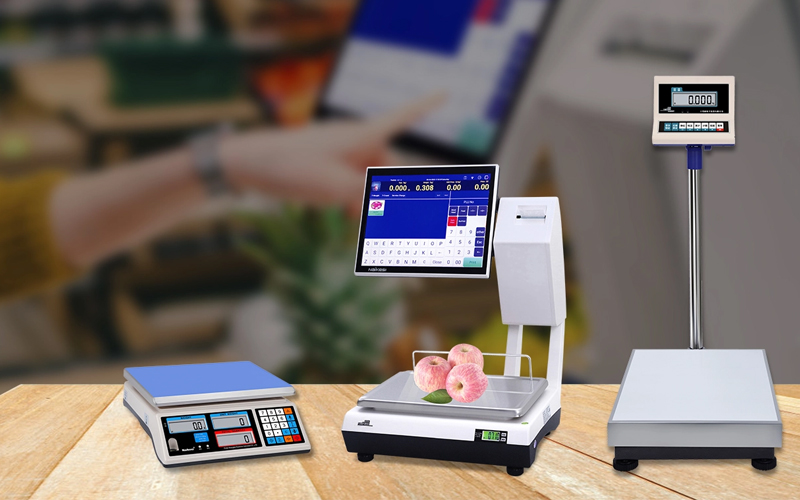In the fast-paced world of the food industry, precision and efficiency are paramount. Ensuring accurate portioning of food items is not only crucial for customer satisfaction but also for regulatory compliance and cost control. One of the indispensable tools in achieving this precision is the checkweigher. This article delves into the working principles, benefits, and considerations in choosing a precision checkweigher for food production.

At its core, a food checkweigher is a dynamic weighing instrument designed to verify the weight of food products during the production process. The working principle involves a conveyor system that transports food items through the precision checkweigher. As each item passes through, sensors or load cells measure its weight. The precision checkweigher then compares this weight to a pre-set target or acceptable weight range. If a discrepancy is detected, the checkweigher triggers an alarm or takes corrective action, ensuring that underweight or overweight items are promptly identified and addressed.
Modern commercial food weighing scales utilize advanced technology such as electromagnetic force restoration or strain gauge load cells to achieve high levels of accuracy. Additionally, they often incorporate sophisticated software that allows for real-time data analysis and integration with other components of the production line.
Quality Control:
Precision checkweighers play a pivotal role in maintaining the quality and consistency of food products. By ensuring that each item meets the specified weight criteria, manufacturers can uphold their brand reputation and customer expectations.
Regulatory Compliance:
Compliance with regulatory standards is non-negotiable in the food industry. Food checkweighers help food producers adhere to weight regulations set by authorities, minimizing the risk of fines or legal consequences.
Cost Savings:
Accurate portioning with food checkweighers contributes to cost control. It helps prevent overfilling, reducing product giveaway and minimizing waste. This, in turn, improves the overall efficiency and profitability of food production.
Enhanced Efficiency:
Integrating commercial food scales into the production line streamlines the process of verifying weights. Automated systems can handle high-speed production, ensuring that every item is accurately weighed without slowing down the overall production pace.
Data Collection and Analysis:
Many modern precision checkweighers come equipped with data collection capabilities. This data can be used for performance analysis, identifying trends, and making informed decisions for process optimization and continuous improvement.
Flexibility:
Precision checkweighers are adaptable to various food products, accommodating a wide range of shapes, sizes, and packaging types. This versatility makes them an essential tool for diverse food production lines.
Here are some ideas from Naikesi electronic digital scale,
Accuracy and Precision:
Choose a precision checkweigher with high accuracy and precision. The level of precision required depends on the specific needs of your production line. Consider factors such as the size and weight of the food items being processed.
Throughput Requirements:
Evaluate the throughput of your production line to determine the speed at which the food checkweigher needs to operate. Different models offer varying levels of throughput, so select one that aligns with the pace of your production process.
Ease of Integration:
Ensure that the chosen precision checkweigher seamlessly integrates into your existing production line. Compatibility with other equipment and the ability to communicate with control systems are crucial for efficient operation.
Adaptability to Product Variability:
If your production involves a variety of food items with different sizes and weights, choose a checkweigher with the capability to handle this variability. Some precision checkweighers come with automatic product changeover features, reducing downtime during transitions.
Hygiene and Cleanability:
In the food industry, hygiene is paramount. Select a precision checkweigher with a design that facilitates easy cleaning and sanitation. Look for features such as stainless steel construction and open-frame designs that minimize areas where contaminants can accumulate.
User-Friendly Interface:
Opt for a food checkweigher with an intuitive and user-friendly interface. This ensures that operators can easily set up the system, monitor performance, and interpret data. A straightforward interface also contributes to efficient training for personnel.
Comprehensive Reporting and Data Analysis:
Consider precision checkweighers that offer robust reporting features. The ability to generate detailed reports and analyze data provides valuable insights into production efficiency and quality control.
Maintenance and Support:
Choose a food checkweigher from a reputable manufacturer that offers reliable customer support and maintenance services. Regular maintenance is essential for the longevity and consistent performance of the equipment.
Budget Considerations:
While it's crucial to invest in a high-quality precision checkweigher that meets your requirements, consider your budget constraints. There are various models available at different price points, so finding one that strikes a balance between features and cost is essential.
In the intricate world of food production, where precision and efficiency are paramount, checkweighers emerge as indispensable tools. Their ability to ensure accurate portioning not only upholds quality standards and regulatory compliance but also contributes to cost savings and enhanced operational efficiency. When choosing a precision checkweigher for food production, careful consideration of factors such as accuracy, throughput, adaptability, and maintenance is crucial. With the right precision checkweigher in place, food manufacturers can navigate the challenges of the industry with confidence, delivering consistently high-quality products to consumers worldwide.